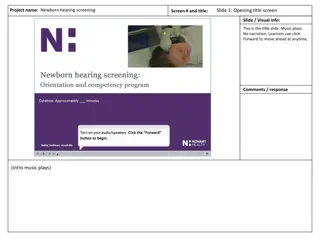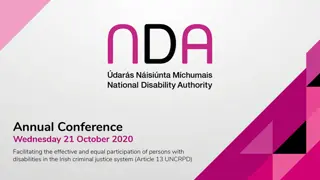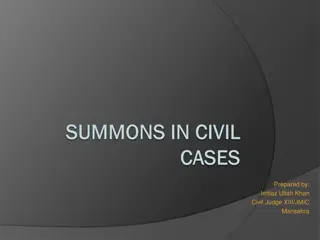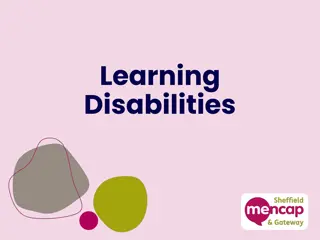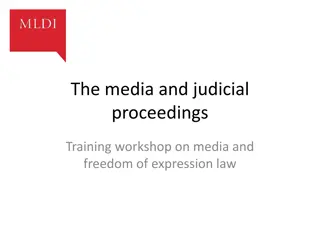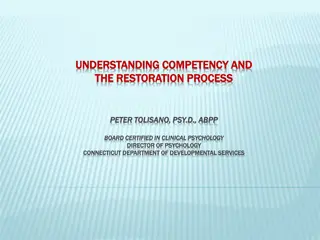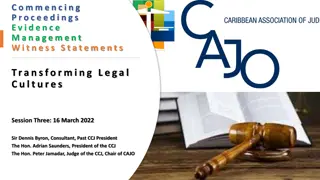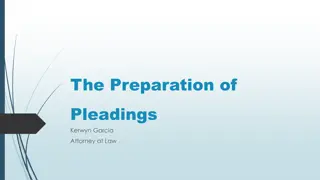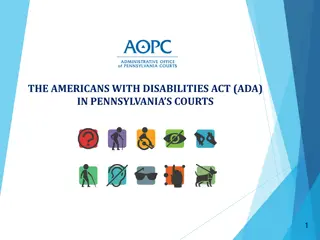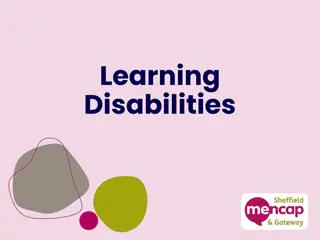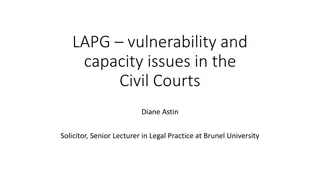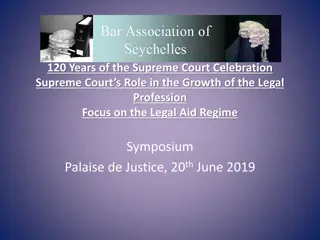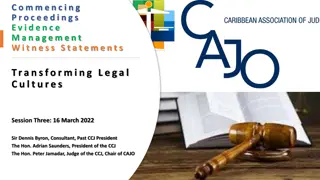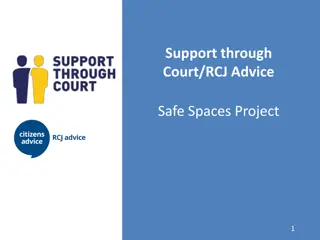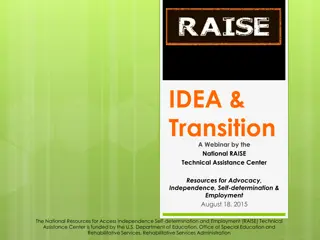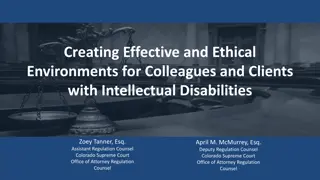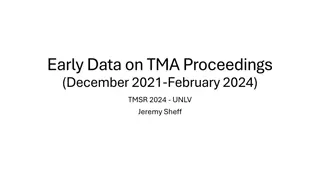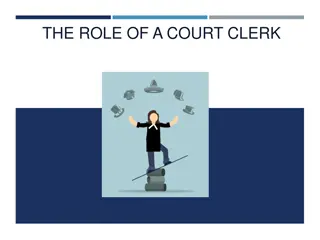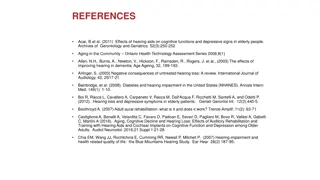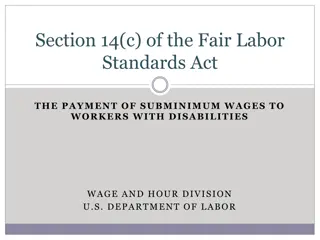Ensuring Fair Hearing in Legal Proceedings for Individuals with Disabilities
Susan Woodford discusses the importance of procedural fairness in legal proceedings involving individuals with mental illness, cognitive impairment, or intellectual disability. She emphasizes the need for flexibility in adopting fair procedures tailored to each case, including providing information to parties, accurate administration, and necessary aids. The goal is to ensure all parties have a fair opportunity to understand the case against them. Various legal cases are cited to highlight the consequences of defective administration on procedural fairness.
Download Presentation

Please find below an Image/Link to download the presentation.
The content on the website is provided AS IS for your information and personal use only. It may not be sold, licensed, or shared on other websites without obtaining consent from the author. Download presentation by click this link. If you encounter any issues during the download, it is possible that the publisher has removed the file from their server.
E N D
Presentation Transcript
Ensuring a fair hearing- matters involving persons with a mental illness, cognitive impairment or intellectual disability Ensuring procedural fairness outside the hearing process COAT Victoria Conference 2016 Susan Woodford, District Registrar, General & Other Divisions, Administrative Appeals Tribunal, Melbourne www.aat.gov.au // 1 www.aat.gov.au
Ensuring procedural fairness outside the hearing process Mason J in Kioa v West (1985) 159 CLR 550 at 585 the expression procedural fairness more aptly conveys the notion of a flexible obligation to adopt fair procedures which are appropriate and adapted to the circumstances of the particular case The critical question is : what does the duty to act fairly require in the circumstances of the particular case? www.aat.gov.au // 2
What does that mean in the context of an application to a tribunal? It requires the tribunal (that is, registry staff and those involved in the life of an application prior to hearing): to provide parties with information about processes; to provide sound administration, ensuring details such as addresses and phone numbers are accurately recorded; to provide appropriate aids and resources to ensure that parties are not disadvantaged (for example, interpreters); www.aat.gov.au // 3
Continued to ensure that information provided by one party is provided in a timely manner to the other party and to the decision- maker, and to afford parties the opportunity to know and understand the case against them and the issues they need to address. www.aat.gov.au // 4
Decisions about defective administration Minister for Immigration & Multicultural Affairs v Bhardwaj (2002) 209 CLR 597 fax not brought to member s attention due to administrative error held that subsequent adverse decision was a denial of procedural fairness; Clements v Independent Indigenous Advisory Authority (2003) 131 FCR 28 incorrectly addressed notice of hearing held party entitled to a fair opportunity to present evidence; SZIZO and Ors v Minister for Immigration & Citizenship (2009) 238 CLR 627; SZUUR v Minister for Immigration & Border Protection (2016) FCA 123 procedural fairness requires timely and effective notice of hearing www.aat.gov.au // 5
ADR/PDR and Procedural Fairness more than 80% of matters in the General & Other Divisions of the AAT resolved through primary dispute resolution registry staff and conference registrars deal with nearly 100% of applications; conference registrars - provide an opportunity to parties to understand the case and issues, and to provide information about material or resources that will assist the party to prepare their case; to provide an opportunity to be heard; to provide information about tribunal processes www.aat.gov.au // 6
Issues training - MRD provide training sessions as well as material on induction to staff about procedural fairness; distinction between providing advice and information to parties : duty to provide information so that party understands role and jurisdiction of the tribunal, as well as the issues that the member will consider in determining the correct or preferable decision www.aat.gov.au // 7


